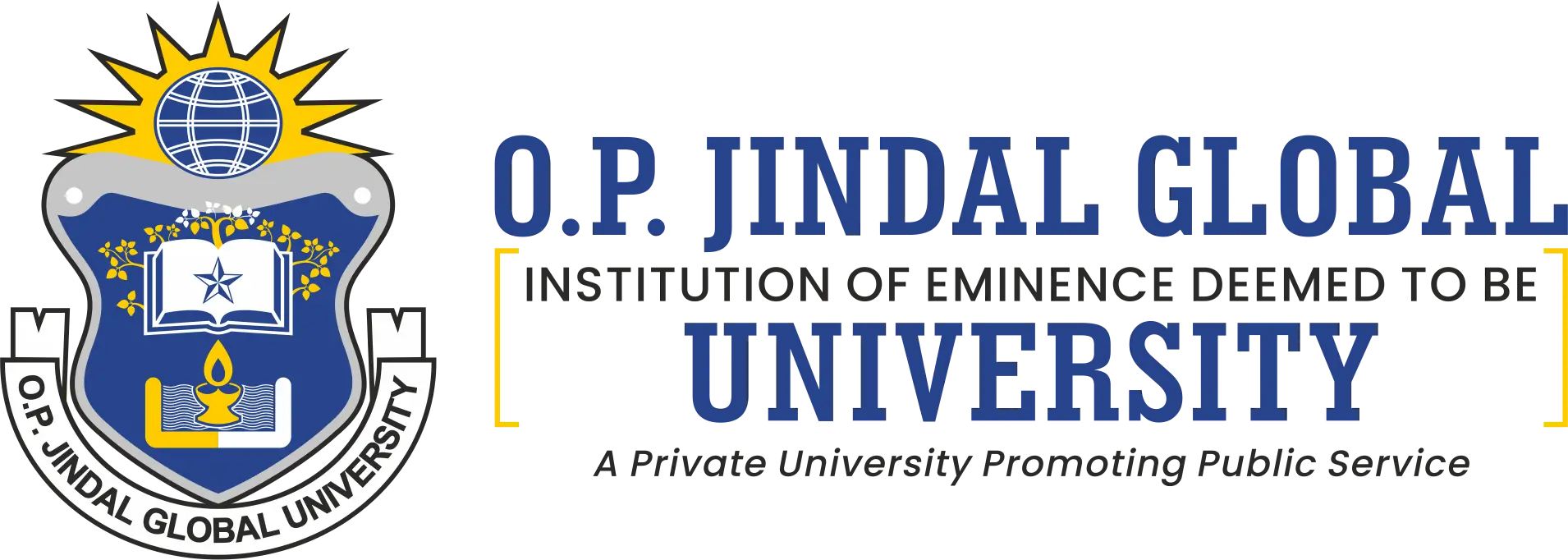Union Minister Hardeep Singh Puri delivers Arun Jaitley Memorial Lecture

Union Minister of Petroleum & Natural Gas Hardeep Singh Puri delivered the Arun Jaitley Memorial Lecture organised by JGU at the campus on the topic ‘India@2047: Towards Fulfilling the Vision of Viksit Bharat’.
Delivering the address, he said: "India was under colonial domination for 190 years and it became a country with barely a 3% share of the global GDP from a 25% contribution. When Prime Minister Narendra Modi came to office, India was a $2 trillion economy. Today, it is a $4.3 trillion economy. We overtook the United Kingdom to become the fourth largest economy. India grew at the rate of 7.8% last quarter. These changes that are taking place are technology-driven, by education, skills, innovation and though quite challenging we have the resilience and the confidence in the future."
"More than 270 million people were lifted out of what is called multi-dimensional poverty during the last decade. The Millennium Development Goals (MDGs), which were coming to an end during my tenure at the United Nations (UN), paved the way for the Sustainable Development Goals (SDGs) and it was understood that development had to come from the grassroots. It became apparent that if the SDGs were to succeed, India had to succeed. We have gone first into women-centred development and then we've transformed into women-led development. The sanitation campaign, which is now central to all the urban and rural schemes, is about giving dignity to the girl child. Furthermore, under the Pradhan Mantri affordable housing scheme, the title of the house would be in the name of the lady of the house. Why? Because invariably, in the event of domestic discord, it's a woman who gets short-changed. Once the title of the house is in the name of the lady of the house, it gives some, if not a total, guarantee of security. This is women-centred development.
"Once the census is complete and we get the delimitation of constituencies, there will be 33.3% of seats reserved in the legislative assemblies and in the central Parliament. Some of the most advanced countries in the world, the most developed countries do not have that. When it comes to development and developing a country by 2047, education is essential. Schools of learning are also becoming centres of innovation," he said.
As part of the Narendra Modi government, Mr. Puri has been associated with Ministries of Housing & Urban Affairs, Commerce & Civil Aviation and is now Minister for Petroleum and Natural Gas, driving India's journey towards energy security and green energy transition with landmark innovations. Before joining the government, and after retiring from the Indian Foreign Service, Mr. Puri was also a part of a think-tank called International Peace Institute.
Recalling the contribution of Mr. Arun Jaitley, Dr. Puri said, "As a young activist, he identified himself with democracy and freedom. He was imprisoned for 18 months during the Emergency. He identified himself with the kind of India we are trying to build, anchored in the rule of law. He was a student, a democrat, a lawyer and a politician. He was an inspiration to many in my generation. There were points on which we happily and democratically disagreed and we did so, given the freedoms that we had."
Mr. Arun Jaitley was a lawyer, politician, and government official who served as leader of the Bharatiya Janata Party (BJP) in the Rajya Sabha between 2009 and 2014. In 2014, he joined the cabinet of the BJP-led government of Prime Minister Narendra Modi. In 2020, he was posthumously awarded the Padma Vibhushan, one of India's highest civilian honours.
In his Welcome Remarks, Professor (Dr.) C. Raj Kumar, Founding Vice Chancellor, O.P. Jindal Global University said, "I want to express my deep sense of gratitude for Dr. Hardeep Puri's encouragement and support for the university and for all the effort that he has taken to personally be with us, given the demands on his time. He is a technocrat-turned-scholar politician who, after a long career as a civil servant and diplomat, transitioned effectively into politics and has held multiple portfolios showcasing adaptability and resilience. He oversaw the Central Vista project, a revamp of the parliament and central government buildings, a highly visible and ambitious infrastructure undertaking but he navigated and built consensus and it is now one of the most remarkable projects in post-independent India. His capacity to operate under extreme pressure, coordinate across ministries and diplomacy and deliver on time in crisis situations underscores his strength in both public service and executive action. He has always demonstrated the best that India can offer to the world with his ability to understand public policy and to articulate it effectively."
Read more:




